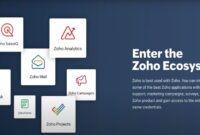enhanced client support
A rise in sales
Improved advertising Enhanced operational efficiency
CRM solutions that are inexpensive are a wise choice for companies of all sizes. Small organizations can start using CRM without needing to make a big investment by using inexpensive CRM systems. Low-cost CRM systems can be used by larger companies to handle particular customer segments or as an addition to their current CRM systems.
Before choosing one of the many affordable CRM options available, it’s critical to evaluate the features and costs of each system. Popular low-cost CRM systems include some of the following:
- HubSpot CRM
- Zoho CRM
- Salesforce Essentials
- Insightly
- Pipedrive
Low-cost CRM systems can be a valuable tool for businesses of all sizes. By investing in a low-cost CRM system, businesses can improve their customer service, increase sales, and improve their overall operations.
CRM Solutions for Businesses That Are Also Cost-Effective
Customer relationship management (CRM) software can be expensive, but there are also many low-cost CRM options available. Low-cost CRM systems can provide businesses with many of the same benefits as more expensive systems, such as improved customer service, increased sales, better marketing, and more efficient operations.
- Affordability: Low-cost CRM systems are designed to be affordable for businesses of all sizes.
- Ease of use: Low-cost CRM systems are typically easy to use, even for businesses with limited technical resources.
- Scalability: Low-cost CRM systems can be scaled to meet the needs of growing businesses.
- Features: Low-cost CRM systems offer a variety of features, including contact management, sales tracking, and marketing automation.
- Integration: Low-cost CRM systems can be integrated with other business applications, such as accounting and email marketing.
- Support: Low-cost CRM systems typically offer support, such as online documentation and email support.
Low-cost CRM systems can be a valuable tool for businesses of all sizes. By investing in a low-cost CRM system, businesses can improve their customer service, increase sales, and improve their overall operations without breaking the bank.
Affordability
CRM systems can be expensive, but low-cost CRM systems make CRM affordable for businesses of all sizes. This is especially important for small businesses and startups that may not have the budget for a more expensive CRM system.
- CRMCRM
- CRMCRM
- CRMCRM
- CRMCRM
CRMCRM
CRM Solutions for Ease of use
CRM systems can be sophisticated and difficult to use, but low-cost CRM systems are usually designed to be simple to use, even by firms with little technical resources. This is significant because it enables firms to implement a CRM system fast and easily, without having to engage in costly training or support.
There are several variables that contribute to the usability of low-cost CRM solutions. First, most low-cost CRM systems are cloud-based, which means they can be accessed from any device with an internet connection. Businesses can start using a CRM system without having to install any software or hardware.
Second, low-cost CRM systems are usually developed with a user-friendly interface. This implies that organizations can readily obtain the information they require and complete the tasks at hand without having to spend a significant amount of time learning how to utilize the system.
Third, low-cost CRM systems often provide a wide range of support tools, including online documentation, training, and webinars. This allows businesses to access help when they need it without having to pay for pricey support contracts.
The ease of use of low-cost CRM solutions is a significant advantage for organizations of all size. Businesses who invest in a low-cost CRM system can improve customer service, increase sales, and improve overall operations without worrying about the system’s cost or complexity.
CRM Solutions for Scalability
Scalability is a vital factor for every firm, but it is especially critical for those that are rapidly expanding. A non-scalable CRM system might quickly become a barrier for growth, unable to keep up with the business’s expanding demands.
Low-cost CRM systems are often built to be scalable, which means they can be expanded quickly and affordably to suit the needs of expanding enterprises. This is significant because it allows organizations to avoid the expense and disruption of transitioning to a new CRM system as they expand.
There are several options for scaling low-cost CRM systems. For example, several low-cost CRM systems include tiered pricing options, allowing organizations to pay for only the capabilities and functionality they require. This allows firms to start with a simple CRM system and then add new features and functionality as they expand.
Low-cost CRM solutions can also be scaled by linking with other corporate software. This enables firms to integrate their CRM system with other systems, such as their accounting system or email marketing system. This can help organizations streamline their operations and increase overall efficiency.
The scalability of low-cost CRM solutions is extremely beneficial to organizations of all sizes. Businesses that invest in a scalable CRM system can avoid the cost and disruption of switching to a new CRM system as their needs develop. This can help firms save money, increase efficiency, and remain competitive in the marketplace.
Features
Low-cost CRM systems offer a variety of features that can help businesses of all sizes improve their customer service, increase sales, and improve their overall operations. These features include:
- Contact Management: Low-cost CRM systems allow businesses to easily manage their contacts, including storing contact information, tracking interactions, and managing communication.
- Sales Tracking: Low-cost CRM systems allow businesses to track their sales pipeline, including managing leads, tracking opportunities, and closing deals.
- Marketing Automation: Low-cost CRM systems allow businesses to automate their marketing campaigns, including sending emails, creating landing pages, and tracking results.
These features are essential for businesses of all sizes that want to improve their customer relationships, increase sales, and improve their overall operations. By investing in a low-cost CRM system, businesses can gain access to these features without breaking the bank.
Integration
Integration is a key feature of low-cost CRM systems. It allows businesses to connect their CRM system to other business applications, such as their accounting system or their email marketing system. This can help businesses to streamline their operations and improve their overall efficiency.
For example, a business can integrate its CRM system with its accounting system to automatically create invoices and track payments. This can save businesses a lot of time and effort, as they no longer have to manually enter data into their accounting system.
Businesses can also integrate their CRM system with their email marketing system to automatically send emails to leads and customers. This can help businesses to nurture their leads and close more deals.
The integration of low-cost CRM systems with other business applications can provide businesses with a number of benefits, including:
- Improved efficiency: Integration can help businesses to streamline their operations and improve their overall efficiency.
- Reduced costs: Integration can help businesses to save money by reducing the need for manual data entry and other repetitive tasks.
- Improved customer service: Integration can help businesses to improve their customer service by providing them with a complete view of their customers’ interactions with the business.
Businesses of all sizes can benefit from integrating their CRM system with other business applications. By doing so, businesses can improve their efficiency, reduce costs, and improve their customer service.
CRM Solutions for Support
Low-cost CRM systems typically offer support, such as online documentation and email support. This is important because it ensures that businesses can get the help they need to get the most out of their CRM system. Online documentation can provide businesses with step-by-step instructions on how to use the system, while email support can provide businesses with personalized assistance from a customer support representative.
- Online documentation: Online documentation is a great way for businesses to learn how to use their CRM system. It can provide step-by-step instructions on how to perform common tasks, such as adding contacts, creating sales opportunities, and generating reports.
- Email support: Email support is a great way for businesses to get help with specific problems. They can email their questions to a customer support representative, who will then respond with a solution.
The quality of assistance provided by low-cost CRM systems varies by manufacturer. Some vendors provide 24/7 help, while others only provide assistance during business hours. It is critical to examine the degree of assistance provided by various providers before making a decision.
Support is a crucial consideration when selecting a low-cost CRM solution. Businesses can ensure that they will receive the assistance they require to get the most out of their CRM system by selecting a vendor that provides a high level of support.
Tips for Choosing a Low-Cost CRM
Customer relationship management (CRM) systems can be a valuable tool for businesses of all sizes. However, the cost of CRM systems can be a barrier for some businesses. If you’re looking for a low-cost CRM system, here are a few tips to help you choose the right one:
Tip 1: Define your needs. Before you start shopping for a CRM system, it’s important to define your needs. What are the most important features that you need in a CRM system? How many users will need to access the system? What is your budget? Once you have a clear understanding of your needs, you can start to narrow down your options.
Tip 2: Do your research. There are a number of different low-cost CRM systems available on the market. It’s important to do your research to find the system that’s right for you. Read reviews, compare features, and talk to other businesses that have used the system. This will help you make an informed decision about which CRM system to choose.
Tip 3: Consider cloud-based CRM systems. Cloud-based CRM systems are hosted by a third-party provider and can be accessed from any device with an internet connection. This makes them a good option for businesses that have a remote workforce or that need to access their CRM system from multiple locations. Cloud-based CRM systems are also typically more affordable than on-premise CRM systems.
Tip 4: Look for open-source CRM systems. Open-source CRM systems are free to download and use. This can save you a significant amount of money compared to proprietary CRM systems. However, it’s important to note that open-source CRM systems may not have the same level of features and support as proprietary CRM systems.
Conclusion
Customer relationship management (CRM) systems are essential for businesses of all sizes. However, the cost of CRM systems can be a barrier for some businesses. Low-cost CRM systems offer a number of benefits for businesses, including affordability, ease of use, scalability, and features that can help businesses improve their customer service, increase sales, and improve their overall operations.
When choosing a low-cost CRM system, it is important to consider your needs, do your research, and consider cloud-based and open-source CRM systems. You should also take advantage of free trials to compare different CRM systems and find the one that is right for you.
By following these tips, you can choose a low-cost CRM system that meets your needs and helps you improve your customer relationships.



